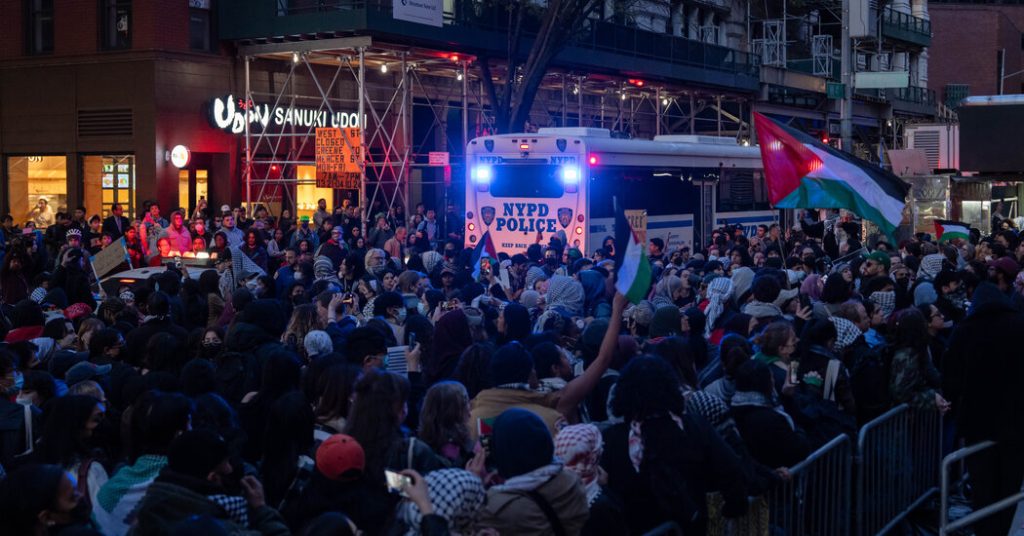Protests erupted at several prominent universities in the United States, including Yale, Columbia, M.I.T., the University of Michigan, and Stanford, with demonstrators advocating for their schools to divest from companies with ties to Israel and to push for a ceasefire in Israel’s conflict with Gaza. The situation has become increasingly tense, leading to the arrests of nearly 50 people at Yale and over 100 at Columbia. University leaders are facing a difficult challenge in trying to navigate these tensions while also addressing concerns of harassment and antisemitic comments towards Jewish students.
At Columbia University, the protests have led to the cancellation of in-person classes, with the school shifting to online learning in response to the demonstrations. Barnard College, located nearby, also made the decision to move classes online. Jewish professor Shai Davidai spoke out about the challenges he has faced, including having his identification card deactivated and accusations of harassment towards pro-Palestinian students. A petition calling for his termination has garnered over 10,000 signatures, highlighting the heightened emotions surrounding the issue.
The protests have sparked a broader conversation about the Israeli-Palestinian conflict and the role that universities play in addressing social justice issues. Students and activists are calling on their institutions to take a stance by divesting from companies that support the Israeli government and advocating for peace in the region. However, these demands have also led to tensions on campus, with reports of antisemitic comments directed towards Jewish students. University administrators are under pressure to balance free speech and safety concerns, as they work to defuse the situation and address the needs of all their students.
The wave of activism at these universities reflects a growing movement in support of Palestinian rights and the need for institutions to address issues of oppression and discrimination. The protests have drawn attention to the role that universities can play in promoting social justice and advocating for change on a global scale. However, the demonstrations have also highlighted the challenges of navigating complex and contentious issues, particularly in relation to the Israeli-Palestinian conflict and the broader context of Middle East politics.
As the protests continue and tensions escalate, it is clear that university leaders will need to carefully navigate these challenges while upholding the values of free speech and respect for all students. The issue of divestment from companies with ties to Israel and the calls for a ceasefire in Gaza are deeply entrenched in political and moral debates, making it difficult to find a resolution that satisfies all parties involved. It remains to be seen how these universities will address the ongoing protests and respond to the demands of their students, while also ensuring the safety and well-being of their campus communities.


